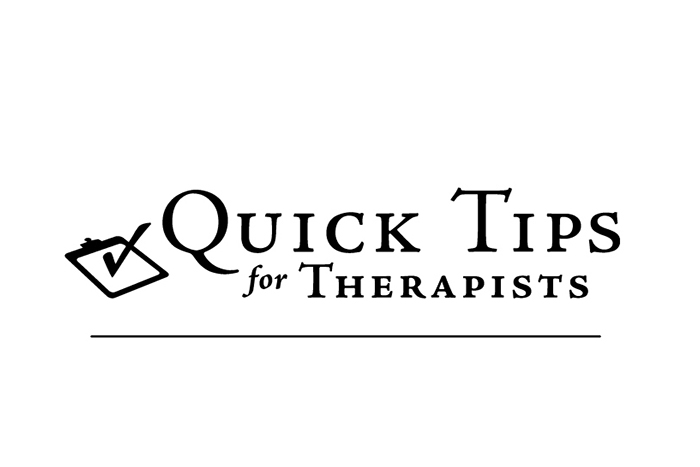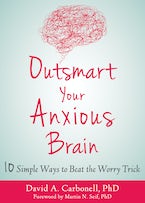Clients with anxiety disorders frequently try to distract themselves from anxious thoughts. This usually leads them into an unsuccessful struggle with thoughts that only increases anxiety. Even when it “succeeds,” it reinforces their belief that thoughts can be dangerous—a belief which predisposes them to anxiety trouble.
Helping a client accept and work “with,” rather than against, anxious thoughts will more reliably help them cope. But when clients focus on the content of anxious thoughts, they’re usually drawn back into distraction. Helping clients more quickly recognize anxious thoughts as just another symptom of anxiety, rather than an important message, is the key.
Here’s a question I ask when a client mentions using distraction:
If distraction is the solution, what does that tell me about the problem?
This question can quickly help clients achieve a clear, often humorous, understanding of the problem which they were previously unable to grasp.
Sample Dialogue:
Therapist: “If distraction is the solution, what does that tell me about the problem?”
Client: “I’m not sure. That it’s terrible?”
Therapist: “Well, if a large dog charged me on the street, looking to rip me apart, how likely am I to sing a happy song?
Client: “Not very!”
Therapist: “Exactly! If that dog charges me, I’m too busy defending myself—looking for a fence to climb or yelling for help—to do any distracting.”
Client: “Yeah!”
Therapist: “So, what does it tell me about a problem if I’m motivated to distract myself from it? It’s a reminder, if I can notice it, that the chips aren’t down right now—that I’m uncomfortable, but not in danger. If I were actually facing a clear and present danger, I’d be too busy defending myself to fool around with my thoughts.”
David A. Carbonell, PhD, is a clinical psychologist who specializes in treating anxiety in all its forms. He is author of Panic Attacks Workbook, The Worry Trick, and Fear of Flying Workbook. He is “coach” of the popular self-help site www.anxietycoach.com, and has taught workshops on the treatment of anxiety disorders in the U.S. and abroad.



 2024 Peace Playbook: 3 Tactics to Avoid Clashes with Your Partner
2024 Peace Playbook: 3 Tactics to Avoid Clashes with Your Partner